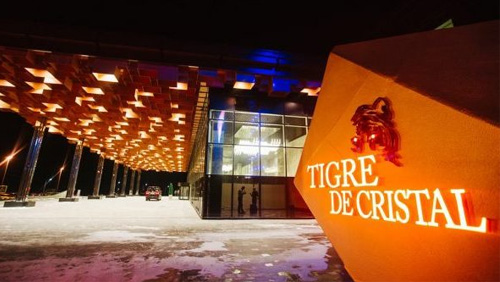Net revenue of Hong Kong-listed casino operator Summit Ascent Holdings Ltd. soared 46 percent on the back of the strong rolling chip operation at Tigre de Cristal in Russia’s Far East.
 In a regulatory filing, Summit Ascent announced that it posted a net revenue of HKD470.6 million (US$60 million) in 2017 compared to HK$323.2 million (US$41.19 million) in 2016. Summit Ascent’s 2017 profit was HK$13.8 million ($1.76 million).
In a regulatory filing, Summit Ascent announced that it posted a net revenue of HKD470.6 million (US$60 million) in 2017 compared to HK$323.2 million (US$41.19 million) in 2016. Summit Ascent’s 2017 profit was HK$13.8 million ($1.76 million).
Summit Ascent chairman Kuo Jen Hao attributed the revenue surge to vibrant gambling activity at Tigre de Cristal.
Tigre de Cristal posted adjusted property earnings before interest, taxation, depreciation, and amortization (EBITDA) of HK$173.7 million, up 32 percent year-on-year, while its rolling chip turnover grew to HK$18.8 billion ($2.4 billion) from HK$14.1 billion (US$1.8 billion) in 2016.
Tigre de Cristal’s mass table revenue climbed 13 percent to HK$132 million (US$16.82 million). Slot machine revenue was up 21 percent to HK$120 million ($15.29 million).
“Most impressively, this was achieved during a period of substantial ownership changes at the Summit Ascent level, the changeover of chief operating officer at Tigre de Cristal, [and] policy uncertainties regarding gaming taxes in the Russian Federation as well as geopolitical instability in the region,” Kuo said in a statement.
Last December, casino mogul Lawrence Ho divested his remaining 20 million shares in Summit Ascent as he looked for opportunities elsewhere.
Quick Glitter Ltd., a company wholly owned by Ho, unloaded 238.6 million shares, representing 16.03 percent of Summit Ascent’s issued share capital.
Ho’s exodus from Summit Ascent came at a time when the Russian Duma announced its plan to hike gaming taxes throughout the Russian Federation.
Last month, the Primorye gaming zone in which Tigre de Cristal resides decided against hiking gambling taxes for fear of deterring future investment by international casino operators.
Union Gaming analyst Grant Govertsen pointed out that Summit Ascent had exceeded some of its expectations, especially when it came to revenue and property-level EBITDA.
Looking ahead, Union Gaming lowered its 2018 VIP growth forecast to 9 percent from 16 percent. For the mass market segment, the Union Gaming analyst is expecting a solid 14 percent growth.
“Importantly, the local government has begun to take enforcement against some (but not all) of the numerous illegal gaming venues in and around Vladivostok,” Govertsen said in a note. “This gives us some optimism as it relates to the outlook for mass and slots on a go-forward basis.”